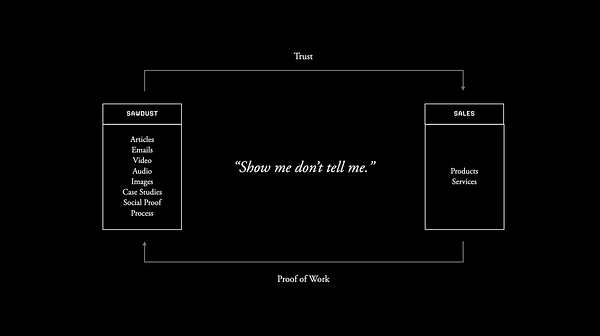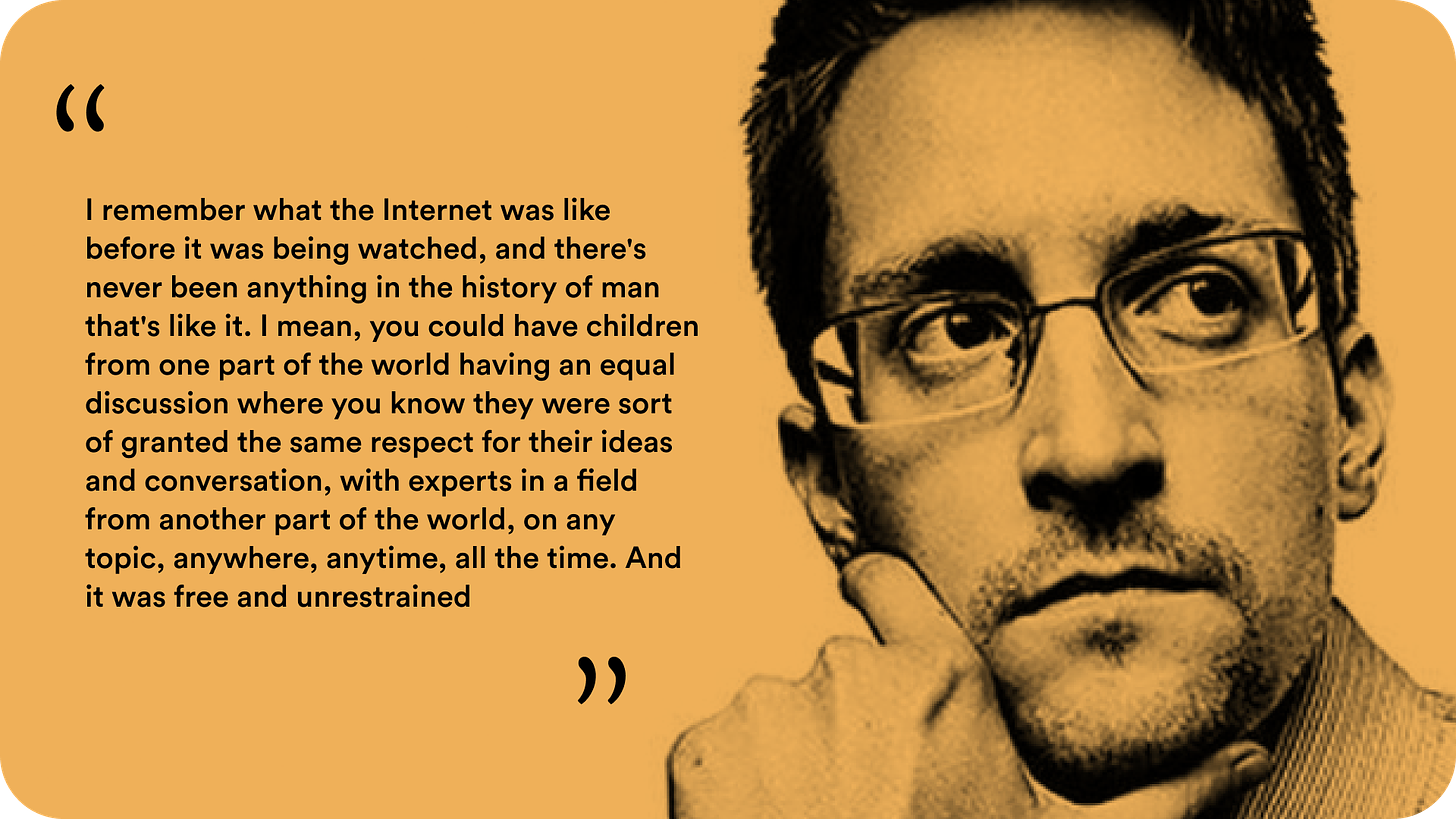The future of work is pseudonymous
How social media was never really for us and how web3 changes this
Hey, thanks for subscribing to Degen University.
We have a lot of exciting things in the works this year for all students at Degen University. A few things to note:
Daily Degen series on YouTube and your favourite podcast app
Degen University sweaters available on the store (we accept ETH!)
Our course on how to set up your crypto assets for inheritance
There are lots more exciting things in the works, including a brand refresh, NFTs, and a discord community. I’m excited to share this with you all and bring value.
With this newsletter, expect thoughtful analysis and commentary about web3.
Without further ado, the future of work is pseudonymous.
Social media changed internet norms
In 2020, the future of work came early, when many companies like @shopify went fully remote. But this is just the beginning of a massive shift. The next evolution of work, (what @balajis calls the "pseudonymous economy") is here and web3 is leading the charge in this. To explain, let's wind the clock back.
It's 2002, we're just past the dot-com bubble, and the internet is starting to be more integrated with society. About half a billion people were regularly logging on, with 95% using Internet Explorer.
What many forget now about the internet back then (because it's so commonplace now) is the fact that putting your real name on the internet was seen as risky. We all used a pseudonym back then, even if we didn't call it that. That was your AIM, ICQ name, username or Gamertag - never your IRL identity. But something started to change in the years that followed. What started with myspace was really cemented with Facebook - Social media normalized putting your real name on the internet.
Facebook was how you connected with others you knew IRL and Linkedin is where you found professional opportunities. You couldn't do that without your real name and a real photo, so we all did it. We posted our lives to our Facebook and Instagram feeds without thinking. Every professional milestone was displayed on Linkedin. Without realizing it, we were chasing the dopamine hits that come from posting on these platforms.
For some, it went a bit too far - spawning memes in the early 2010's like:
Throughout this time, posting your life to social media was seen as normal. But normal is relative to the times and the normal we were given was never for us, really. As the past decade and a half revealed: we were always the product.
Whatever benefit we got from freely giving our information to these platforms, paled in comparison to what they got. Execs at these companies became millionaires and billionaires on the backs of our data and engagement. That would never have happened if putting our real names and pictures on the internet wasn't normalized. But norms are shifting once again and web3 is ground zero for it.
Your online identity =/= IRL identity
If you look around, pseudonymous creators are everywhere. From the Bored Ape Yacht Club founders* to the founder of Bitcoin: they created success without needing to reveal who they were. In the past, this was impossible. You wouldn’t be able to get paid without revealing your government identity or your banking information. Web3 has shown us that you can achieve financial success, you can work, and you can grow your network, without anyone knowing your name or what you look like. This is the beginning of the pseudonymous economy.
In this new economy, your IRL identity and your online identity can remain separate. Online, you have a pseudonym (that you pick as we did as kids with our gamer tags and usernames). Instead of a photo, many choose to represent themselves with an NFT.
When you think about it, your identity is fundamentally a store of your reputation. Features that identify you, such as your government name or face are a living ledger of you. This is why we all have the same name for all of our life: it’s a signifier that helps others to identify us. But on the internet, there’s no reason this has to be your government name. Online, the store of your reputation can (and increasingly will) be your pseudonym. Mine is atareh. Pseudonymity gives you all the advantages of building online, with varying levels of privacy IRL (depending on how much you divulge).
Pseudonymity leads to a more equitable world
The pseudonymous approach is more equitable. In this world, your name and race don't matter. We know that the name on your resume impacts your job prospects, with “North American” names often getting more interviews and opportunities. With pseudonymity, what matters is your reputation and the work you've done (also called: your proof of work).


Working pseudonymously also means you're paid in stateless, borderless currency - so you can work from where ever you want with just a laptop and an internet connection. It’s interesting that blockchain and cryptocurrency - something crucial for pseudonymous people to work - was founded by a pseudonymous person. The real identity of Satoshi Nakamoto, the creator of blockchain and bitcoin, remains unknown.
The future of work is here
The future of work is in part already here, with online remote work, accessible to anyone with an internet connection. I believe that in the coming years, we'll see more and more people choose to be pseudonymous online. If this seems far off to you, don't be mistaken, it's already happening today. I’m choosing to remain pseudonymous so my work and reputation will be tied to atareh and my Mutant Ape Yacht Club NFT. Before they were doxxed by a journalist, the @boredapeyc founders were pseudonymous too, having created a multi-billion dollar NFT ecosystem. We knew them as @CryptoGarga, @GordonGoner, @TomatoBAYC, and @SassBAYC.
If this future scares you, then take solace in that at one point in time, we were afraid of putting our real names and faces online. Social norms will once again change - and this new future will prove to be more equitable, fair and distributed. This was always the original vision of the internet. A leveller of the playing field. It reminds me of this quote by @Snowden from Citizen Four:
I'm excited to do my part in building this new internet with all you degens. Pseudonymous or not.
This article first appeared as a thread on Twitter. Follow me on there for more






